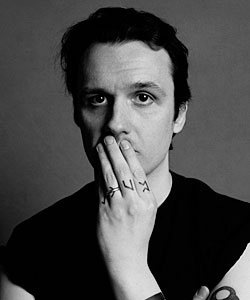
The story of Damien Echols, one-third of the notorious West Memphis Three, is one of the most harrowing and incredible tales in recent memory.
The timeline begins in 1993, when three teenagers living in the conservative Bible Belt of West Memphis, Arkansas, were wrongfully convicted of murdering three eight-year-old Boy Scouts in what was purported to be a Satanic sacrifice.
With inconclusive evidence linking the teens to the crime scene, a botched investigation, and a confession that was later recanted citing police coercion, Echols and his counterparts, Jason Baldwin and Jessie Misskelley Jr., were indicted, many allege, simply because they stood out. Prosecutor John Fogleman famously asserted in his closing statements that wearing black, listening to heavy-metal music, and having an interest in Wicca was enough to warrant an investigation. In turn, all three were found guilty and Echols sent to death row.
Although it’s foggy when I first heard of the case, I’m almost certain it came to my attention through Eddie Vedder’s concert banter. Vedder was one of the celebrities who got behind the cause to free the WM3. Watching Paradise Lost, HBO’s acclaimed documentary that covers the case history, I found the story relatable: Echols—with his gothic garb, heavy-metal music collection, and cultural curiosity—reflected my teenager self.
In August 2011, Vedder was in the Arkansas courtroom as a special hearing for the WM3 was called after years of denied appeals. Echols, Baldwin, and Misskelley Jr. entered the controversial Alford Plea agreement, which meant they could profess their innocence but formally plead guilty in order to be released from prison.
Since his release, Echols has written a memoir, Life After Death, that gives an account of his experience. On Wednesday at 7 p.m., he stops at Chicago’s Logan Square Auditorium to discuss the book, take questions from the audience, and sign copies of Life After Death. I’ll be leading the discussion, asking Echols about the case, his unique concept of “magick,” and how marathon meditation sessions allowed him to overcome his death row experience. Tickets are $5, which goes toward the purchase of a book.
Photograph: Peter Ash Lee


